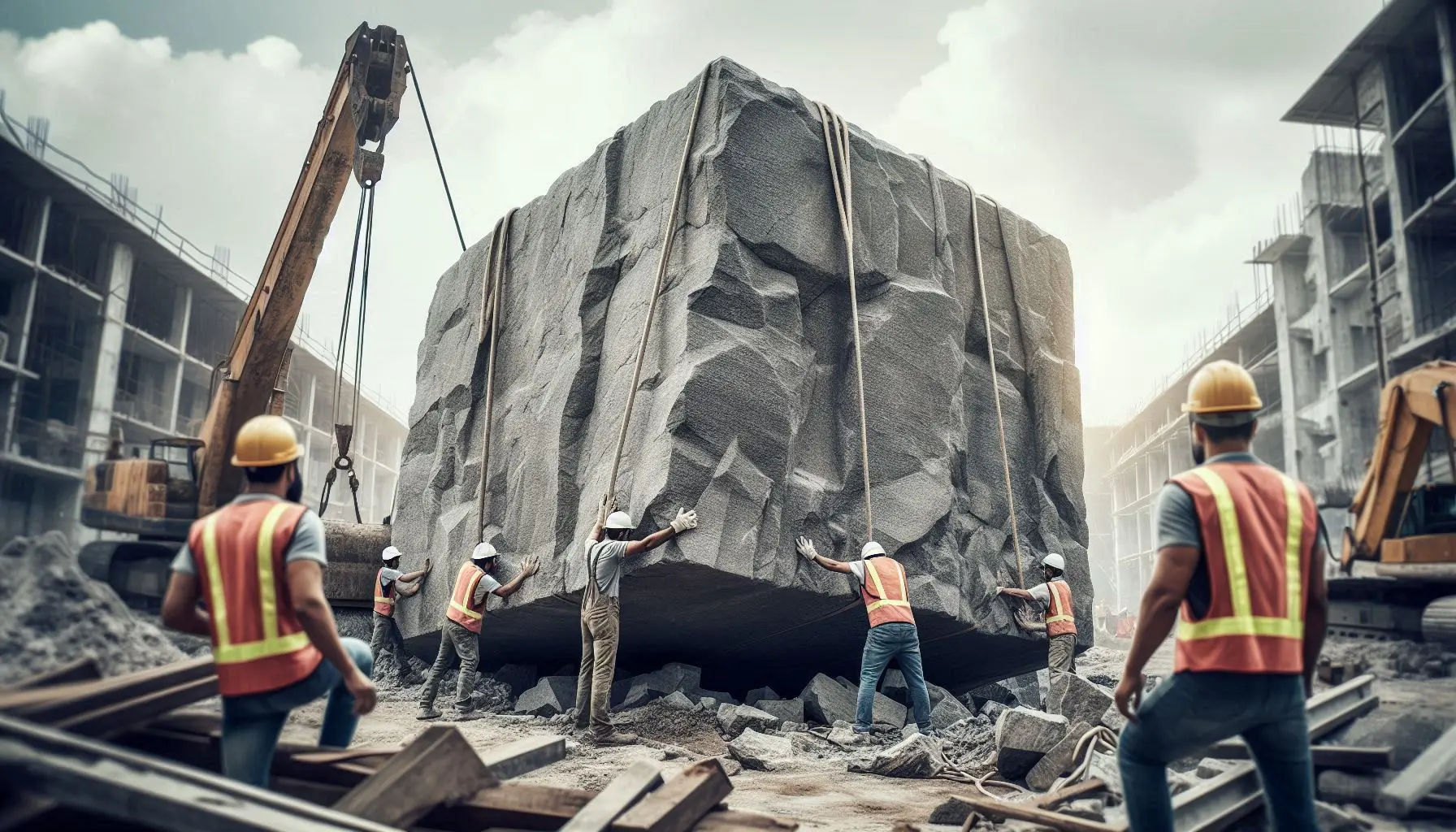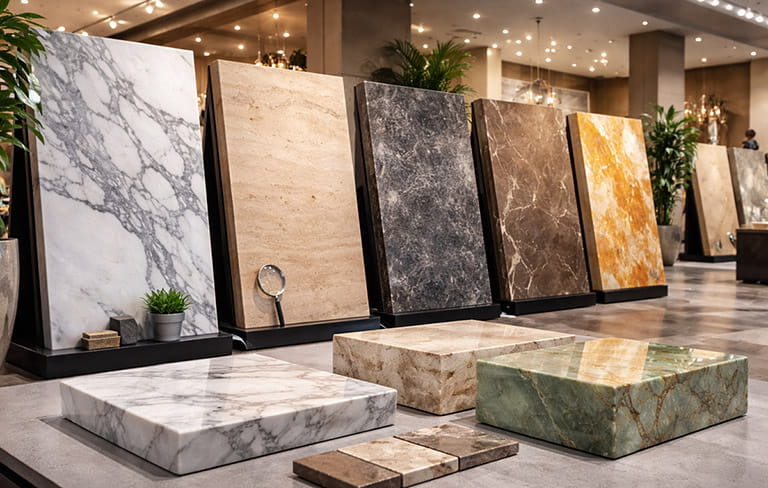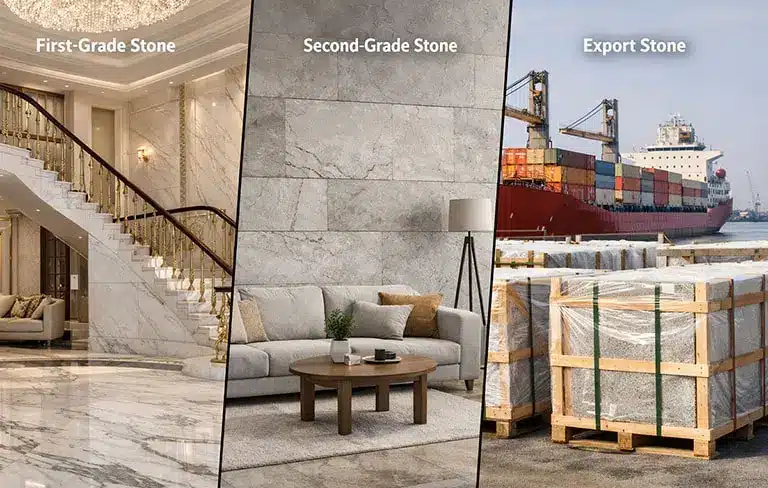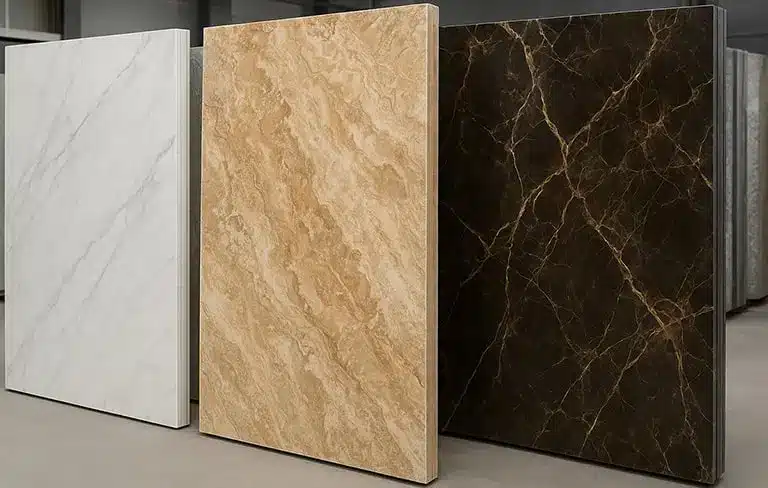
What is Slab Stone and What Are Its Applications?
2025-01-27
Marble; Features, Applications & Benefits
2025-02-02How to Choose the Right Building Stone?
Choosing the right building stone is one of the most important decisions in construction, interior decoration, and landscaping. Building stones should not only be aesthetically pleasing but also possess desirable technical and mechanical properties. In this article, we will explore the key factors in selecting building stones and introduce various types.
Importance of Choosing the Right Building Stone
Using the right stone ensures the durability and beauty of a building. Poor stone selection can lead to reduced building lifespan and increased maintenance costs. Factors such as usage location, climate conditions, physical and chemical resistance, and architectural style must be considered.
Types of Building Stones
1. Granite
Granite is one of the most durable building stones. Due to its high hardness, resistance to wear, and low water absorption, it is used for exterior facades, flooring, and staircases. This stone comes in a variety of patterns and colors, enhancing the building’s aesthetics.
2. Marble
Marble is a popular stone in interior decoration due to its glossy and transparent appearance. It has moderate resistance and is sensitive to acidic substances. Therefore, it is mostly used in interiors such as walls, flooring, and columns.
3. Travertine
Travertine, with its porous texture and good resistance to temperature changes, is a suitable option for building facades. This stone comes in various colors and has good adhesion to mortar, preventing it from detaching from walls.
4. Limestone
Limestone is an affordable building stone commonly used for facades and interior walls. Compared to granite and travertine, it has lower resistance and is not recommended for areas with high humidity.
5. Quartzite
Quartzite is a hard and durable stone that, due to its high resistance to wear, is ideal for flooring and landscaping. It is also resistant to moisture and temperature changes, requiring minimal maintenance.

Factors Affecting the Choice of Building Stone
1. Usage Location
One of the most important factors in selecting a stone is its intended use. For example, facade stones must be highly resistant to weather conditions, whereas for interiors, aesthetics and design are more significant.
2. Climate Conditions
Regions with cold climates require stones with high resistance to freezing, while in warm areas, light-colored stones with low water absorption are recommended.
3. Physical and Chemical Resistance
The stone should be resistant to pressure, wear, and impact. Some stones are also sensitive to acidic and alkaline substances, which should be considered when selecting.
4. Architectural Style and Interior Design
The harmony of the stone with the architectural style and interior design is another key factor. Some stones complement modern styles, while others are more suited to classic and traditional designs.
5. Cost and Budget
The price of building stones varies depending on type, quality, and processing. For the best choice, purchase and maintenance costs should be taken into account.
How to Maintain Building Stones
- Regular cleaning with appropriate cleaning agents
- Avoiding contact with acidic and alkaline chemicals
- Using protective coatings to increase durability and longevity
Conclusion
Choosing the right building stone requires careful consideration of physical properties, aesthetics, resistance, and environmental conditions. By taking into account the usage location, climate, architectural style, and budget, the best option for construction projects can be selected. Finally, proper maintenance of building stones increases their lifespan and preserves their beauty.




